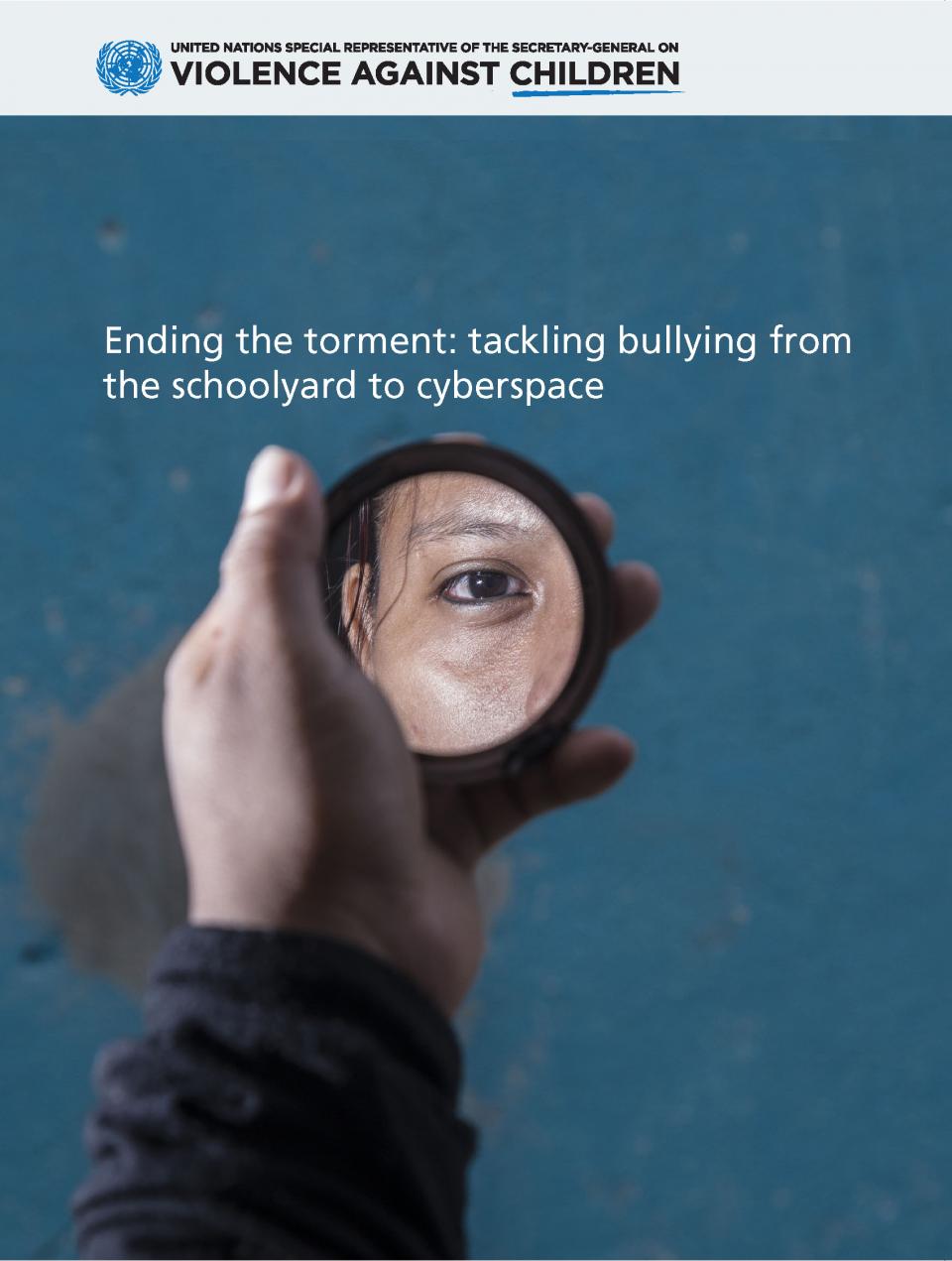SRSG launches second report of the Secretary-General on bullying, including cyberbullying

New York, 26 September 2018 - As a follow-up to the 2016 report of the Secretary-General on bullying, the SRSG has released a second report pursuant to General Assembly resolution 71/176 giving attention to measures promoted by Member States over the past two years to prevent bullying and to protect children.
“Whether it happens online or in person, bullying is one of children’s top concerns around the world. The latest data is very worrying; worldwide more than 1 in 3 students (130 million) between 13 and 15 years of age experience bullying regularly. This has dire consequences on their health, development and emotional well-being. My Office was therefore very committed to work with Member States, United Nations partners, independent national human rights institutions and civil society organizations to inform this new report, including through three global consultations which have helped shine a light on progress made since 2016 and key areas where urgent action is needed”, said SRSG Santos Pais.
The second report of the Secretary-General gives particular attention to laws and policies that have been put in place, supported by awareness raising initiatives at national level to prevent bullying, including online. Attention is also given to restorative practices that aim to repair harm and rebuild relationships while addressing accountability of those responsible. The report recognizes the critical importance of research and data to inform effective and sustainable interventions; and, above all, the importance of engaging children to learn from their experiences, and to benefit from their insights to ensure the safeguard of their rights.
“Children are key experts on bullying; they are the ones who suffer from its harmful effect, but they are also uniquely placed to inform solutions,” said Santos Pais.
“The way children treat each other at school mirrors the way adults treat each other in society. This means that crudeness, violence and slanderous language are all in effect, even in childhood.”
Kathleen, a young writer
The report highlights the extensive efforts undertaken by Member States and other stakeholders across regions. “But much more needs to be done to achieve the vision of the UN Convention on the Rights of the Child and the 2030 Agenda for Sustainable Development targets on peace, non-violence, education, gender equality, and good health and wellbeing. This second report, presented to the General Assembly at its seventy-third session, gives us food for thought on how far we have come over these past two years, and how far we must go to ensure children’s safety, including in the digital world and through new and emerging areas of concern,” said the Special Representative.
Building on the previous Report of the SG on bullying, the new report calls for strengthened action to accelerate progress towards the elimination of bullying, recommending that particular emphasis be placed on the following areas:
Awareness raising initiatives to keep bullying prevention in the public eye, inform society of its dangers and provide information to children that encourages them to speak up and seek support;
Children, as key experts on all aspects of bullying, must be part of all efforts aimed at prevention, protection and response; children in vulnerable situations must be given priority, including through efforts to promote mutual respect and tolerance for diversity;
Parents and caregivers need support in developing skills in non-violent discipline and modelling respectful and compassionate behavior as nurturers, including information to help them detect warning signs of bullying;
Whole-school programmes that engage the wider community are effective in preventing and responding to bullying; they must be child-centered, involve all relevant actors and be sustained by strong leadership and adequate resources;
Legislation must underpin comprehensive policies to prevent and respond to bullying to give weight to their enforcement, and laws are critical to specify prohibited conduct and to safeguard the rights of affected children;
Accurate, reliable and disaggregated data is critical to breaking the silence and promoting positive changes to prevent and tackle bullying, and evidence-based initiatives are essential to providing effective prevention and response measures.
“It will get better. There is always someone to talk to. Whether that’s your mum, sister, teacher or peer. There is someone who wants to help; and you have to let them.”
A secondary school student

